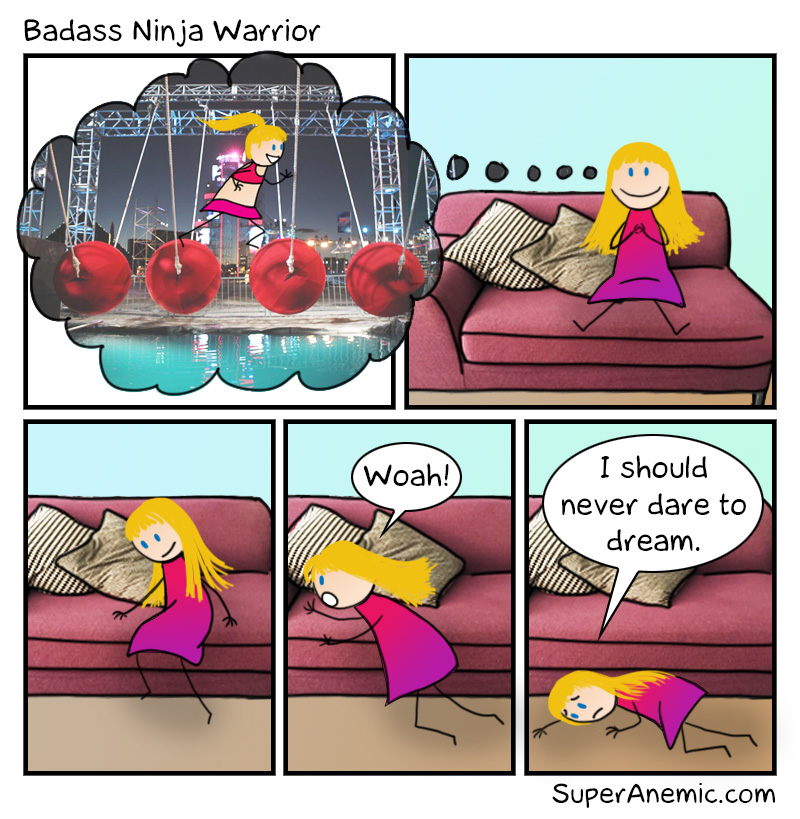Tuesday – Marlene is going to come here by bus and we are going to have fun. (she will come Friday and stay ’till Monday). We will go to Fairview and movies and La Ronde.
I love how determined I was to have fun. I sound like an android. “We WILL accomplish this thing you call fun.” FYI, Fairview is a mall, and La Ronde an amusement park.
Speaking of La Ronde. My brother came into my room this morning saying he was going to La Ronde with his friend (he borrowed 20 bucks) so he wasn’t here to let in Bob (our stupid worker dude who is putting a third bathroom in our house) so I was sleeping and in my dream the doorbell rings and the other girl goes to get it and it keeps ringing and I slowly drift awake and hear the doorbell, by the time I figured out what was going on it stopped ringing. I fell back asleep again and then net time I woke up I think it was mom who came in the house. I fell asleep again and what woke me up this time (at 2:00 p.m.) was music so loud I thought the singer was in my room! I heard Bob and his little helper singing along (ooh, my ears!) then it sounded like they were in the kitchen eating or something. Like what are we paying them for?! Anyway, Bob the idiot doesn’t know I’m here and I don’t want him to, so I’ll stay upstairs and sneak around as best I can. I’m starved, oh well, I need to go on a diet anyway, and need to use the bathroom but I want to wait ’till they are in the garage and it doesn’t seem to be happening. Gosh, I hate this, why do I have so many goddamned problems?
I was cringing in pain as I transcribed this, but then the lament about having so many problems made me laugh. So here’s the deal: I’ve got social anxiety, but as a kid I didn’t know what it was. I just knew I was afraid of people. I was deeply ashamed of it, but afraid nonetheless. And because I didn’t understand what it was about, it was all the worse. I sound like a spoiled brat, hiding in my room, sleeping in until all hours, refusing to open the door for our contractor, forcing my mother to leave work to do it, and from an outside perspective I can see how ridiculous it seems. But I didn’t remain hidden because I was bratty, I was truly afraid. Afraid of what, you might ask? Any interaction that I wasn’t prepared for. I was panic-stricken and frozen in fear.
Even today I do silly things like this. As recently as a month ago I was in the bathroom taking selfies when the doorbell rang. I knew my significant other was home so I let him answer it. (I don’t answer doors when I’m alone unless I’m expecting a delivery). It was our contractor and he came in and proceeded to have an unnecessarily lengthy conversation with my SO. I figured I’d wait them out but… after half an hour it became ridiculous. They were right outside the bathroom door so I knew I’d startle the contractor if I suddenly appeared, but it felt equally awkward to stay hidden. I chose to stay hidden, and basically stared at myself, chastising myself for being so weird as I waited for him to leave. Oh well. Some things never change.
School starts the 28th. Maybe something good will happen then, maybe I’ll be popular and have a great boyfriend. SIGH.
I guess I still do this sort of thing too, i.e., hope for the impossible. Every time we hire someone new at work (which happens shockingly often) I think maybe it’ll be someone totally awesome and we’ll become fast friends and conquer the world together. But then it just turns out to be another utterly normal human being and I’m disappointed again. Still, I’ve made some progress. I’m much more capable now of enjoying the company of normal humans than I was when I was a teenager.



